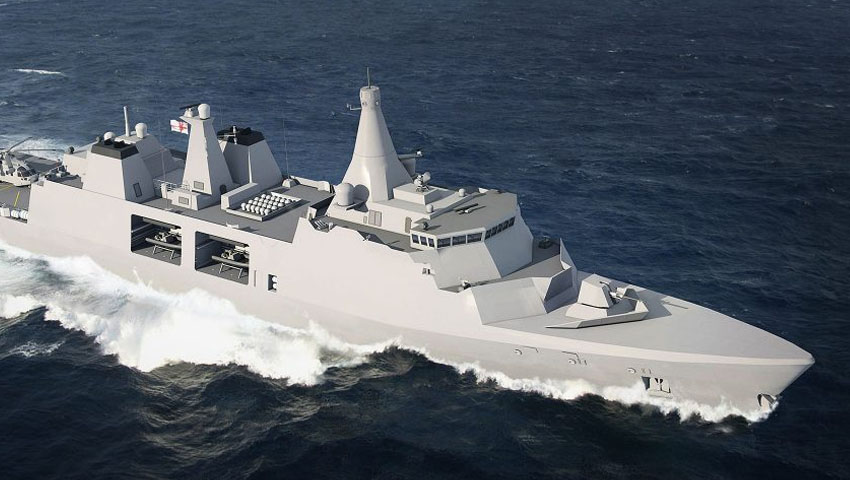The British government has announced a major new naval shipbuilding program with the revelation of the Type 31 program kickstarting a period of sustained naval shipbuilding, providing parallels to Australia’s own $95 billion naval shipbuilding program.
Thousands of jobs in the British naval shipbuilding industry will be created over the next decade, British Prime Minister Boris Johnson announced on Thursday, as he pledges to bring shipbuilding back to the UK and strengthen the Royal Navy.
The UK government has committed to buying at least five of these cutting-edge vessels designed by Babcock for the Royal Navy as part of a £1.25 billion contract, with more expected to be exported to governments around the world. The first British Type 31 ship will be in the water by 2023.
Britain's Type 31 program is expected to support over 2,500 jobs across the UK, with different elements of the frigates being assembled and built at British shipyards. At least 150 of these jobs will be for new technical apprenticeships. The ships will be built exclusively in the UK.
Prime Minister Johnson said, "[The] UK is an outward-looking island nation, and we need a shipbuilding industry and Royal Navy that reflect the importance of the seas to our security and prosperity."
The new Type 31 ships will build on the exporting success of the Type 26 frigates, which were designed in the UK and will soon be sailing as part of the British, Australian and Canadian navies.
The government is also committed to realising the UK’s potential to be a world leader in commercial shipbuilding, particularly for cruise ships, ferries and yachts. The leisure, superyacht and small commercial marine sector expanded by 1.7 per cent last year, its seventh consecutive year of growth. Last year the UK was third in global yacht building rankings.
"This is an industry with a deep and visceral connection to so many parts of the UK and to the Union itself. My government will do all it can to develop this aspect of our heritage and the men and women who make up its workforce – from apprentices embarking on a long career, to those families who have worked in shipyards for generations," PM Johnson added.
To realise this shipbuilding ambition, the Prime Minister has appointed Defence Secretary Ben Wallace as Shipbuilding Tsar. As part of this brief, the Defence Secretary will work across government to enhance the UK’s shipbuilding enterprise, including with the Department for Education, BEIS and the Department for International Trade, which this week launches a new Maritime Trade and Investment Plan.
Secretary Wallace said, "These mighty ships will form the next generation of the Royal Navy fleet. The Type 31 frigates will be a fast, agile and versatile warship, projecting power and influence across the globe.
"The ships will be vital to the Royal Navy’s mission to keeping peace, providing life-saving humanitarian aid and safeguarding the economy across the world from the North Atlantic, to the Gulf, and in the Asia-Pacific."
The Prime Minister’s commitment to reinvigorating the British shipbuilding industry will also strengthen and enhance the capabilities of the Royal Navy and those of our international partners and allies.
The government has pledged to maintain a surface fleet of at least 19 frigates and destroyers and to grow this fleet in the 2030s. The first batch of five Type 31 frigates will help achieve this, by replacing Type 23 frigates.
At a time where the challenges across the world’s seas are increasing, the Type 31 frigates will enable the UK to undertake more missions such as the interception and disruption of those breaching international maritime law, intelligence collection and protecting commercial shipping.
Like the larger Type 26 that will serve with the Royal Australian Navy as the Hunter Class guided missile frigates, the UK expects that the Type 31 will experience the same level of export success, providing similar avenues for Australia's own $95 billion naval shipbuilding program to follow.
Secretary of State for International Trade Liz Truss expanded on the UK's export plans, stating, "We will make the Type 31 frigate an export success. Like the Type 26 before it, there has been significant interest in the design and capabilities of the Type 31 from around the world.
"Countries are modernising their fleets to safeguard against 21st century naval threats and British-built vessels and maritime technology are in high demand. An outward looking United Kingdom will seize this opportunity as we leave the EU."






